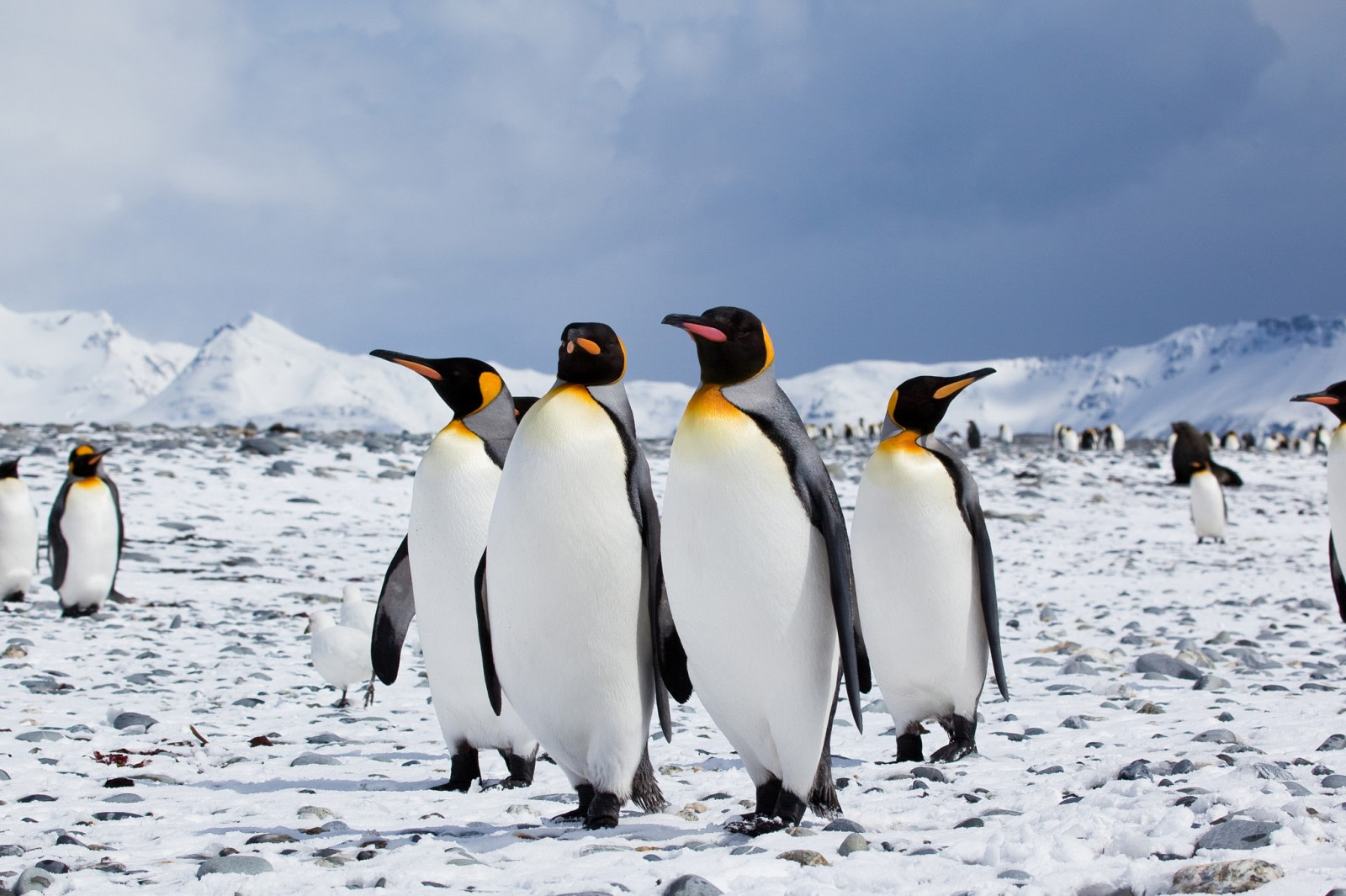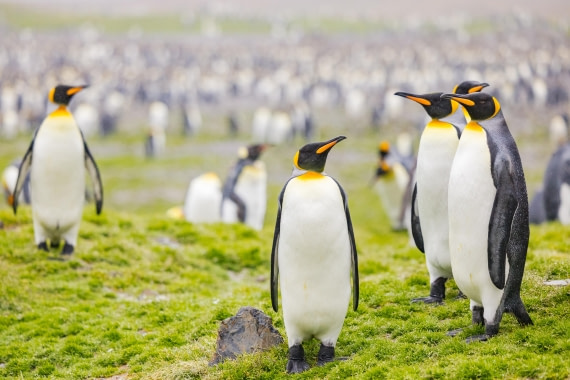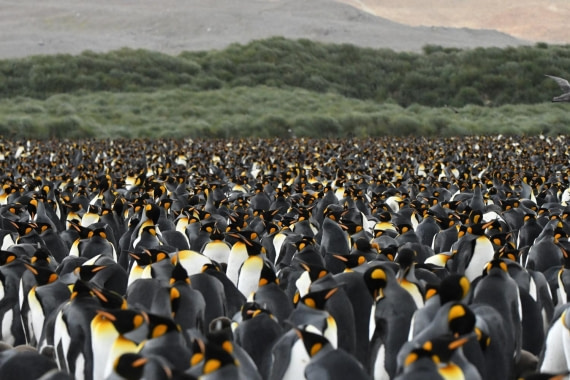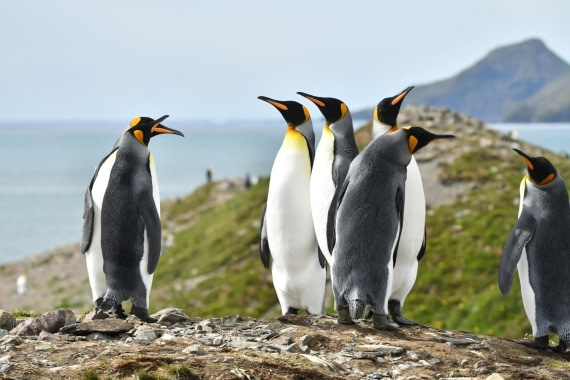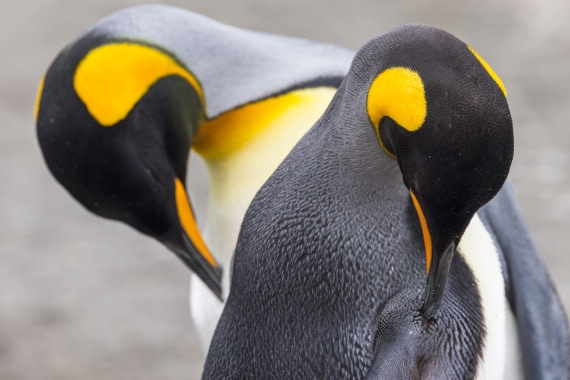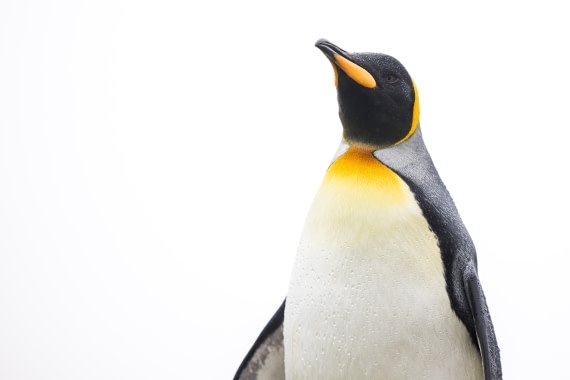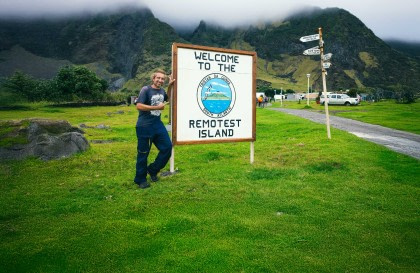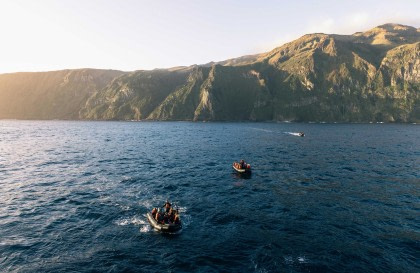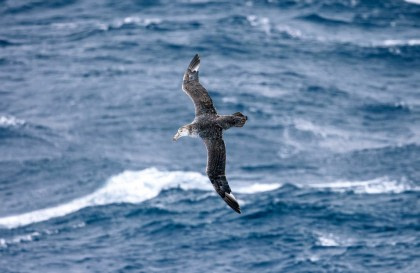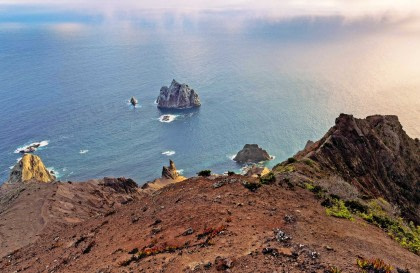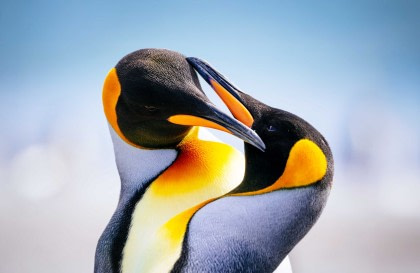Name: King Penguin (Aptenodytes patagonicus)
Height: 70-100 cm
Weight: 10-16 kg
Location: Sub-Antarctic
Conservation status: Least Concern
Diet: Small fish, squid, small crustaceans
Appearance: Black, white belly, orange-red cheeks and bill, golden yellow high on neck area
How do King Penguins hunt?
King Penguins make multiple dives usually to a depth of over 100 metres, with depths of over 300 metres having been observed. King Penguins will not immediately resurface, instead spending up to just shy of 10 minutes (although usually closer to 5 minutes) underwater on some dives, investigating the seabed for prey.
Are King Penguins social?
King Penguins form gigantic colonies when they come in to shore during the mating season. One colony on South Georgia is estimated to have over 200,000 birds.
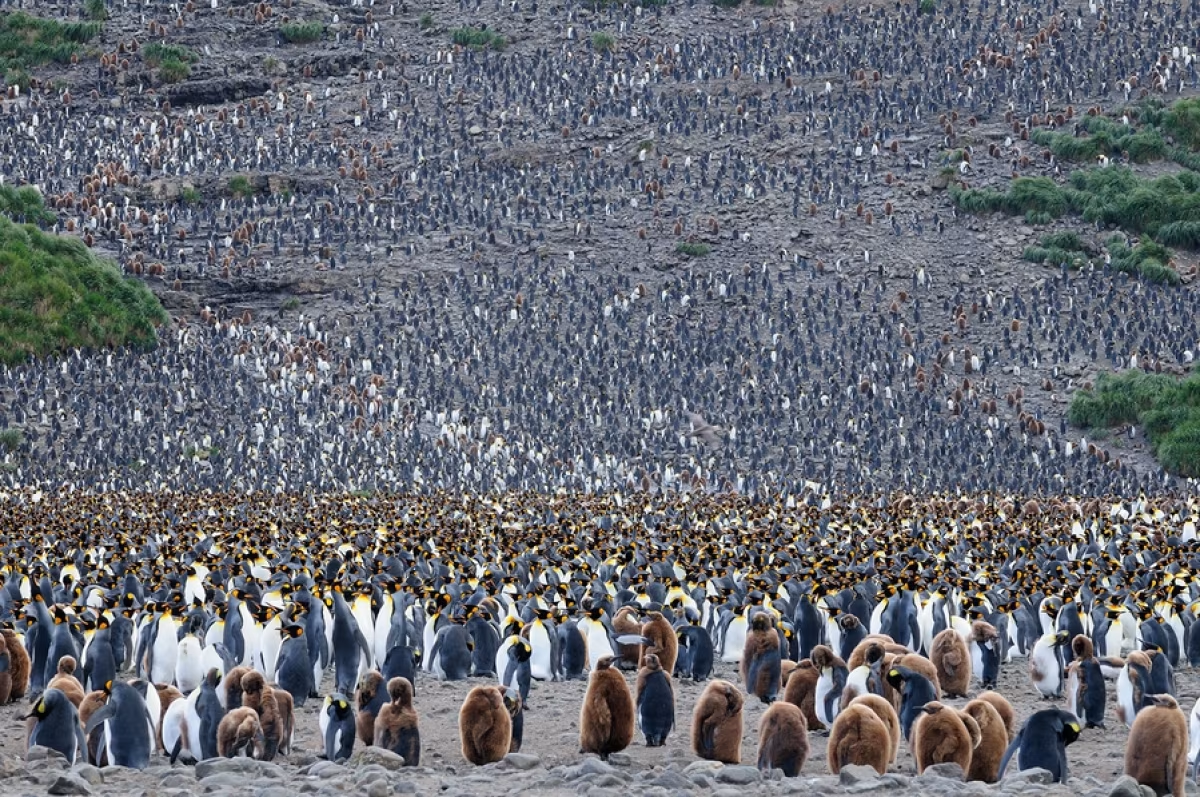
How fast can King Penguins move?
The average cruising speed for a King Penguin while swimming ranges somewhere between 5 and 10 km per hour.
On land King Penguins are walkers and tobogganers as opposed to some of their cousins that prefer to hop around.
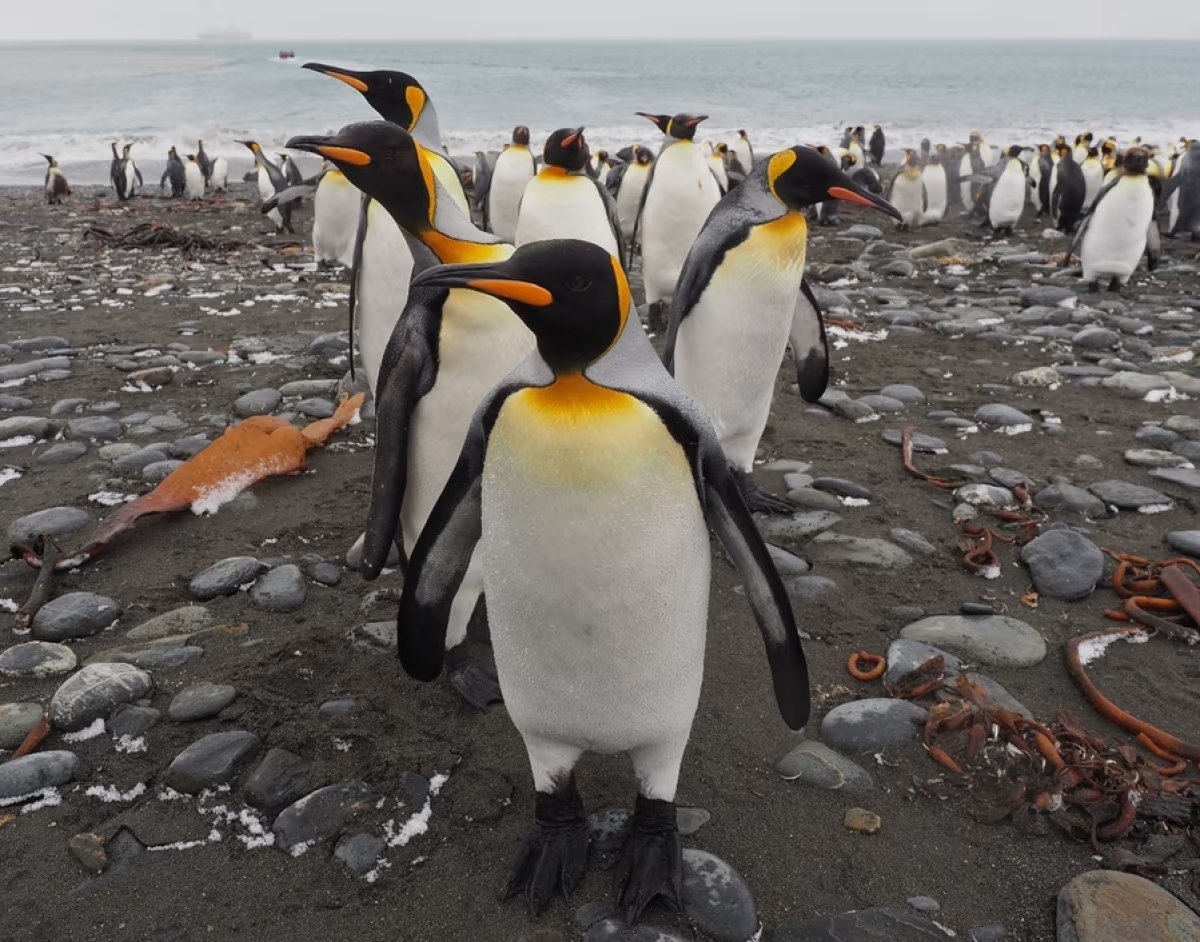
What are King Penguin mating rituals like?
King Penguins mature sexually at 3 years of age, though it’s more likely for them to start breeding around age 6.
King Penguins are “serially monogamous” – they mate with only one mate per season, working with their mate to hatch the egg and care for the chick. However, unlike some other species of penguin, they’re not so likely to return to the same mate the next year – about 70% will find a new mate the following season.
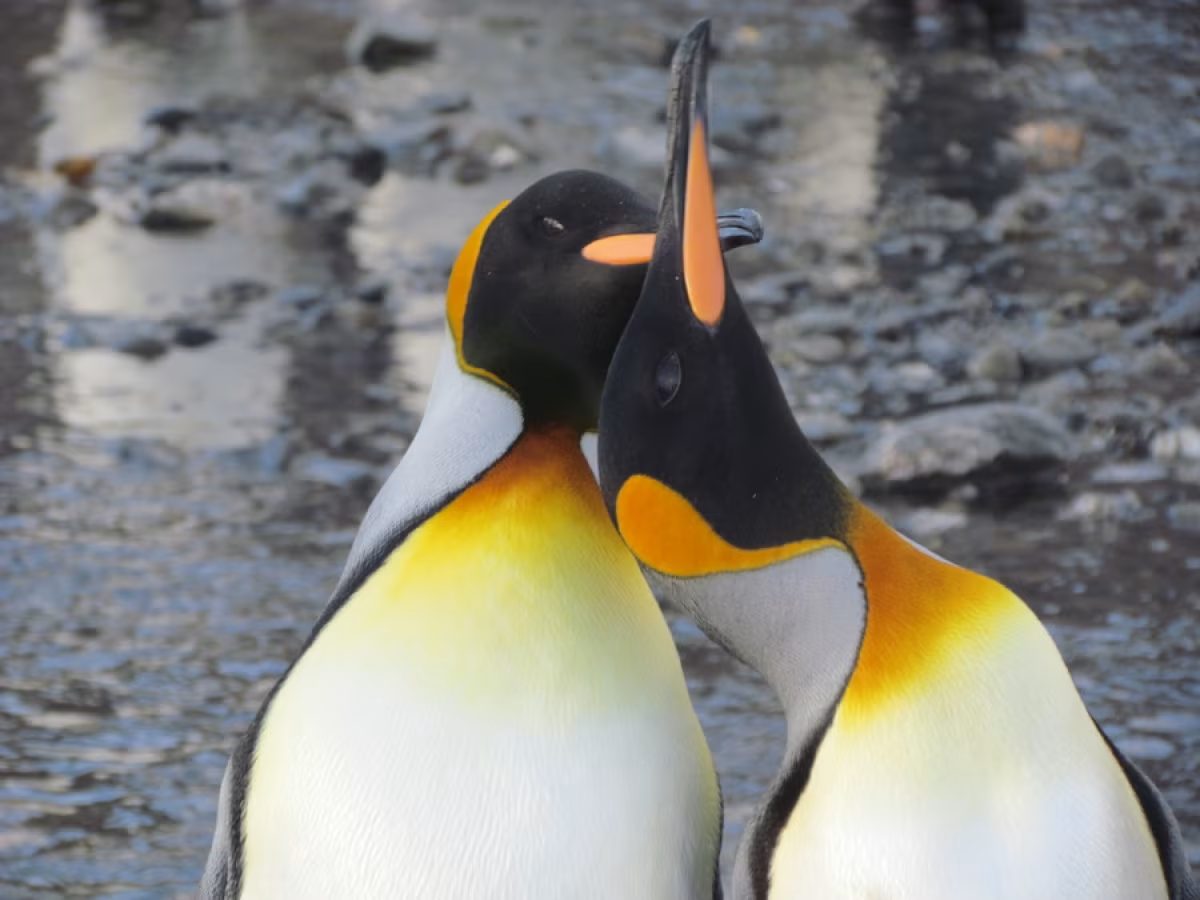
The mating season begins with a return of the Penguins to solid ground, coming in from the hunting grounds of the sea. In September through November the birds moult – replacing their worn out feathers with new ones, necessary to remain waterproof. Mating occurs during this time ashore.
They then return to the sea for about 3 weeks for more hunting. Somewhere in November to January the female will lay one egg that weighs around 300 grams. The adults will take turns incubating the egg for periods of about 1 to 2 ½ weeks each, while the other goes off and hunts. The adult who remains does not feed during their shift.
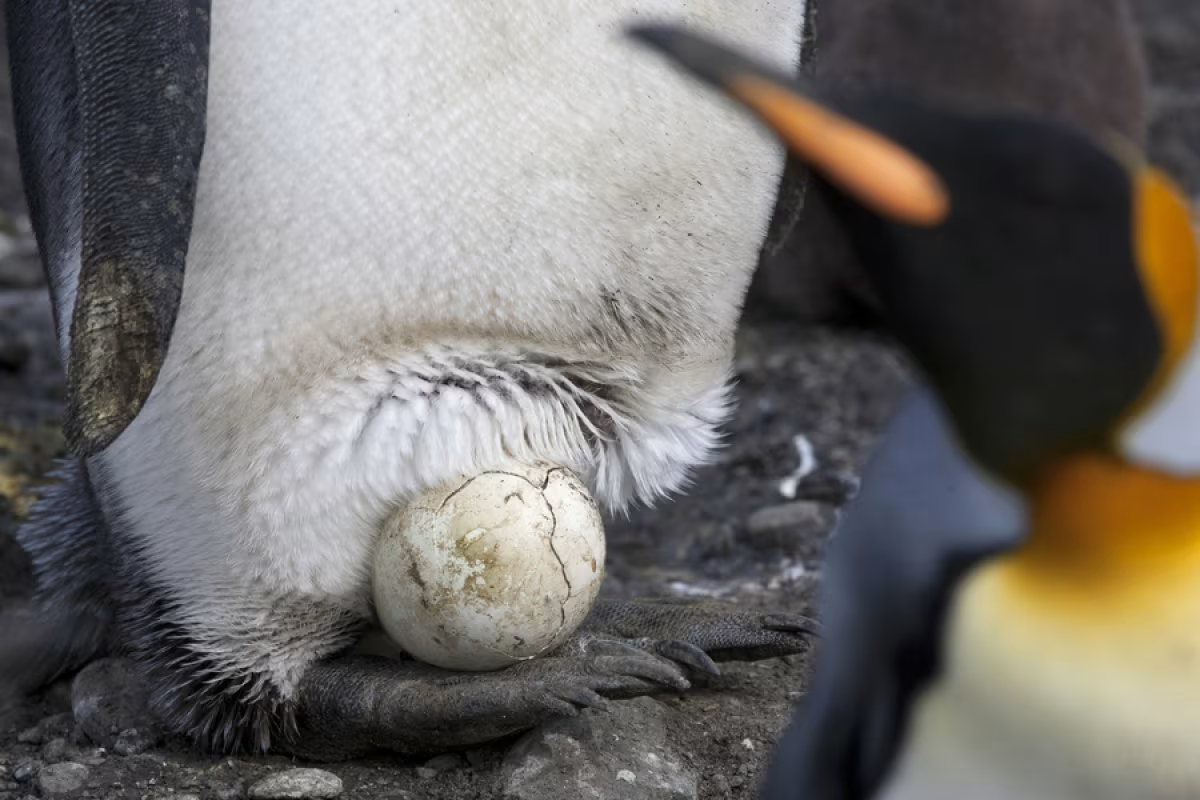
The egg hatches between 50 and 60 days after being laid. The chick is completely helpless and must be kept both warm and fed by the parents. Again the parents take turns, one keeping the chick warm, the other going off to hunt down some fish to bring back to regurgitate it for the newborn. This phase lasts about up to 40 days, with the parents switching off every week or so.
Next the chick joins the other chicks in its own sub-community called a crèche. They will use each other for warmth and to keep from being singled out by predators while they grow their feathers in and learn how to survive on their own.
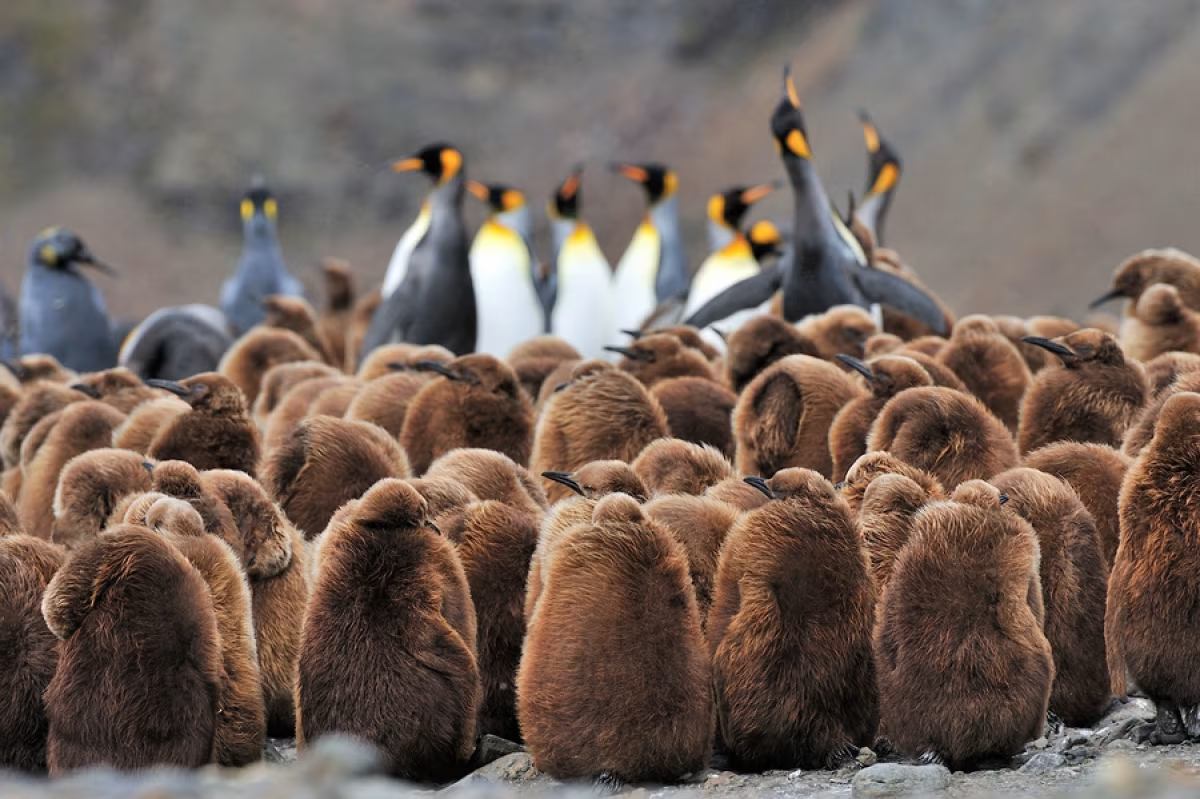
How long do King Penguins live?
King Penguins can live up to 25 years in the wild.
How many King Penguins are there today?
A conservative estimate puts the worldwide King Penguin population at 2.2 million breeding pairs.
Do King Penguins have any natural predators?
King Penguin chicks and eggs are vulnerable to other sea birds like the Skua or Snowy Sheathbill. Adults can be taken by different kinds of Seals and Killer Whales.
8 Killer King Penguin Facts
- King Penguins are the 2nd largest species of penguin.
- A King Penguin’s birth through maturity takes an unusually long time compared with the rest of the Penguin world - between 14 and 16 months. Other Penguins are laid, hatch, and head off to the sea usually within a summer season.
- This difference in the King Penguin’s cycle is thought to be due to their large size – the extended length of time means there will be plenty of fish in the water when the newborns finally head into the sea to start hunting on their own, as opposed to other species heading off to the waters during scarcer hunting seasons.
- The King Penguin is on the emblem of the Edinburgh Zoo, Scotland.
- Some early explorers thought that King Penguin chicks were a separate species of Penguin because they look so different – brown and fuzzy.
- Unlike most other Penguin species, King Penguin colonies have inhabitants the entire year round thanks to the length of their maturity cycle.
- King Penguins don’t make nests of any kind. They carry their egg around with them at all times on top of their feet.
- Once a young King Penguin does leave its colony it will not return until at least 3 years later when it’s able to mate.
